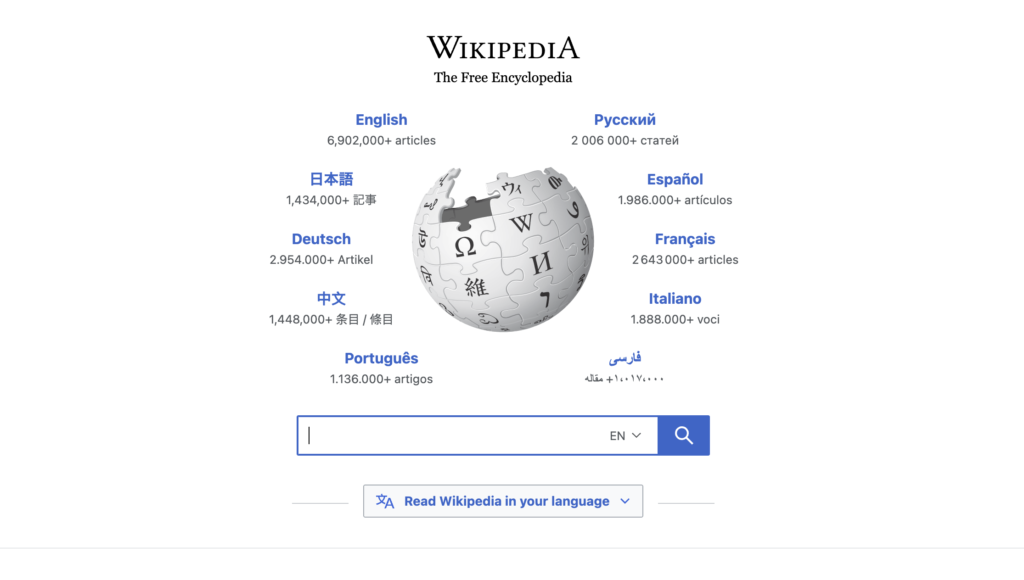Table of Contents
In this article, you’ll learn about What is Wikipedia, it’s history, it’s impact and more.
What is Wikipedia?
Wikipedia, the free encyclopedia, is a multilingual online encyclopedia collaboratively edited by volunteers. It is the largest and most-read reference work in history, and is consistently ranked among the ten most visited websites. As of August 2024, it was ranked fourth by Semrush, and seventh by Similarweb. Founded by Jimmy Wales and Larry Sanger on January 15, 2001, Wikipedia has been hosted since 2003 by the Wikimedia Foundation, a non-profit organization funded primarily through donations.

Wikipedia is notable for its open-content business model and its emphasis on verifiability, which means that information must be attributable to a reliable, published source. This has led to concerns about the accuracy and neutrality of its content, as well as questions about the role of volunteers in maintaining such a large and complex project.
History
The idea for Wikipedia originated in 2001, when Nupedia, a free online encyclopedia project, was launched. Nupedia was a collaborative project that required articles to be written by experts and reviewed by a board of editors. However, the project was slow to grow, and only a few dozen articles were published in its first year.
In January 2001, Jimmy Wales and Larry Sanger decided to create a wiki version of Nupedia, called Wikipedia. A wiki is a type of website that allows users to create and edit content collaboratively. Wikipedia’s wiki software, MediaWiki, was developed specifically for the project.
Wikipedia quickly grew in popularity, and by 2005 it had become the largest and most comprehensive encyclopedia in the world. In 2007, Wikipedia was named the “Person of the Year” by Time magazine.
Content
Wikipedia contains over 61 million articles in over 300 languages. The English Wikipedia is the largest edition, with over 6.9 million articles. Other large editions include the German, French, Spanish, and Russian Wikipedias.
Wikipedia articles are written by volunteers from all over the world. Anyone can edit a Wikipedia article, as long as they follow the site’s guidelines. This open-editing model has led to concerns about the accuracy and neutrality of Wikipedia’s content. However, Wikipedia has a number of mechanisms in place to help ensure the quality of its articles, such as a system of peer review and a process for resolving disputes.
Impact
Wikipedia has had a significant impact on the way people access and consume information. It has made it possible for anyone to learn about almost any topic imaginable, for free. Wikipedia has also had a significant impact on the way information is produced and disseminated. It has shown that a large and complex project can be successfully managed by volunteers.
Wikipedia has also been criticized for its lack of diversity and its tendency to reflect the biases of its editors. However, Wikipedia is constantly evolving, and it is likely that it will continue to be an important source of information for years to come.
Conclusion
Wikipedia is a unique and valuable resource that has transformed the way we access and consume information. It is a testament to the power of collaboration and the importance of open access to knowledge. While it has its flaws, Wikipedia is an invaluable tool that has the potential to educate and inform people around the world.
Frequently Asked Questions (FAQs) About Wikipedia
General Questions
- What is Wikipedia?
Wikipedia is a free online encyclopedia collaboratively edited by volunteers. It’s one of the largest and most-read reference works in history. - How does Wikipedia work?
Anyone can edit most articles on Wikipedia. The community of editors works together to ensure the accuracy and neutrality of information. - Is Wikipedia reliable?
While Wikipedia is generally reliable, it’s important to critically evaluate the information, especially for sensitive topics or those requiring precise details. - Who owns Wikipedia?
Wikipedia is hosted by the Wikimedia Foundation, a non-profit organization. - How is Wikipedia funded?
The Wikimedia Foundation is primarily funded through donations.
Editing Wikipedia
- How do I edit a Wikipedia article?
To edit an article, simply click the “Edit” button on the page. You’ll be able to add or modify text, images, and other content. - What are the guidelines for editing Wikipedia?
Wikipedia has a set of guidelines that editors should follow to maintain the quality and neutrality of the encyclopedia. These guidelines cover topics like citing sources, avoiding bias, and respecting copyright. - How can I contribute to Wikipedia if I’m not a good writer?
You can contribute to Wikipedia in many ways, such as proofreading, fact-checking, adding images, or translating articles.
Using Wikipedia
- How can I find information on Wikipedia?
You can use the search bar at the top of the page to search for specific topics. You can also browse by category or explore featured articles. - How can I cite Wikipedia?
While Wikipedia is a valuable resource, it’s generally not considered a credible source for academic work. However, you can use Wikipedia to find reliable sources that you can cite. - Are there any limitations to using Wikipedia?
While Wikipedia is a great resource, it’s important to remember that it’s a work in progress. Some articles may be incomplete or inaccurate.